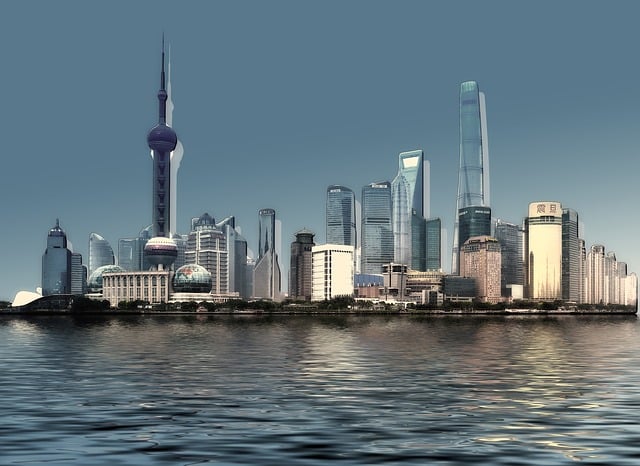Karachi, Pakistan's economic powerhouse, faces severe traffic congestion due to rapid urbanization and rising vehicle ownership. Inadequate infrastructure development and haphazard planning exacerbate the problem, causing daily delays, air pollution, and negative impacts on businesses, residents' health, and productivity. Historical solutions like one-way systems only offer temporary fixes. To combat this, Karachi is implementing innovative strategies, including smart transportation technologies, expanding public transport (BRT & metro), improving road infrastructure, promoting cycling lanes, and pedestrian zones. By integrating smart city technologies, encouraging public transportation, shared mobility, and sustainable urban planning, Karachi aims to transform its bustling streets into a more manageable, safer, and livable transportation network for its growing population.
Karachi, Pakistan’s economic hub, faces a significant challenge in the form of traffic congestion. This article delves into the complex issue of traffic jams in Karachi, exploring its causes and impacts on daily life. We trace the historical perspective, highlighting previous efforts to mitigate congestion. Furthermore, it presents innovative solutions and current initiatives aimed at improving traffic flow. Finally, it looks ahead to potential future strategies for efficient traffic management in Karachi.
- Understanding Traffic Jam in Karachi: Causes and Impacts
- Historical Perspective: How Has Karachi Dealt with Congestion Previously?
- Innovative Solutions and Current Initiatives for Karachi's Traffic Woes
- Looking Ahead: Potential Future Strategies for Efficient Traffic Management in Karachi
Understanding Traffic Jam in Karachi: Causes and Impacts

Traffic jams in Karachi, Pakistan’s financial hub, have become an increasingly pressing issue, negatively impacting the city’s inhabitants and economy. The causes are multifaceted, ranging from rapid urbanization leading to a surge in vehicle ownership, inadequate infrastructure development keeping pace with population growth, and haphazard planning allowing for dense and inefficient road networks. These factors culminate in congested roads, particularly during peak hours, causing significant delays and increased air pollution.
The effects of traffic congestion are profound. They include reduced productivity as commuters lose valuable time, leading to economic losses for businesses. It also contributes to environmental degradation, with vehicles emitting harmful pollutants, exacerbating Karachi’s already challenging air quality issues. Furthermore, the stress caused by daily commutes negatively impacts individuals’ mental health and overall quality of life in Pakistan’s bustling metropolis.
Historical Perspective: How Has Karachi Dealt with Congestion Previously?

Karachi, Pakistan’s economic hub, has long grappled with traffic congestion, a challenge that has evolved alongside its rapid urban growth. Historically, the city’s transportation infrastructure struggled to keep pace with its expanding population and industrial development. In the past, Karachi saw numerous ad-hoc solutions to navigate increasing vehicle numbers on narrow, often poorly maintained roads.
Previous attempts at alleviating congestion included temporary measures like one-way traffic systems and selective road closures during peak hours. However, these strategies were mostly reactive and failed to provide a comprehensive, sustainable framework. The city’s historical approach lacked long-term planning, resulting in a patchwork of quick fixes that only temporarily relieved the mounting pressure on Karachi’s roads.
Innovative Solutions and Current Initiatives for Karachi's Traffic Woes

Karachi, Pakistan’s economic powerhouse, faces significant traffic congestion that demands innovative solutions. The city’s rapid urbanization and increasing vehicle ownership have led to a complex web of challenges on its roads. To combat this, various initiatives are underway to transform Karachi’s traffic landscape. Smart transportation technologies are being implemented, aiming to optimize signal timings and manage real-time traffic flow using data analytics. Additionally, the promotion of public transport, including bus rapid transit (BRT) systems and an expanded metro network, is a key strategy to reduce private vehicle usage.
These efforts are complemented by initiatives focused on infrastructure development, such as expanding road networks, improving intersections, and constructing flyovers. The integration of cycling lanes and pedestrian-friendly zones also encourages sustainable mobility options, contributing to a more livable and less congested city. Karachi’s traffic woes require a multi-faceted approach, combining technological advancements with strategic urban planning to ensure a seamless and efficient transportation system for its growing population.
Looking Ahead: Potential Future Strategies for Efficient Traffic Management in Karachi

With Karachi’s population growing and urbanisation accelerating, efficient traffic management becomes increasingly critical. Future strategies should focus on integrating smart city technologies like real-time traffic monitoring, AI-driven signal optimisation, and dynamic route planning to alleviate congestion. Implementing these innovative solutions can help Karachi transform its bustling streets into a more manageable and safer transportation network.
Additionally, promoting public transport, encouraging shared mobility options, and adopting sustainable urban planning practices can significantly contribute to reducing private vehicle reliance. By looking ahead with these forward-thinking strategies, Karachi has the potential to become a model for efficient traffic management, enhancing the quality of life for its citizens and fostering a more livable, less congested metropolis.
Karachi, as a bustling metropolis, has long grappled with traffic congestion, but understanding its causes and exploring innovative solutions are key steps towards managing this complex issue. By learning from historical efforts and adopting cutting-edge initiatives, Karachi can navigate its traffic jams effectively. Looking ahead, implementing intelligent transport systems, promoting public awareness, and encouraging sustainable mobility options could revolutionize urban mobility in the city of lights. With the right strategies, Karachi can transform its traffic woes into a smoother, more efficient future.
